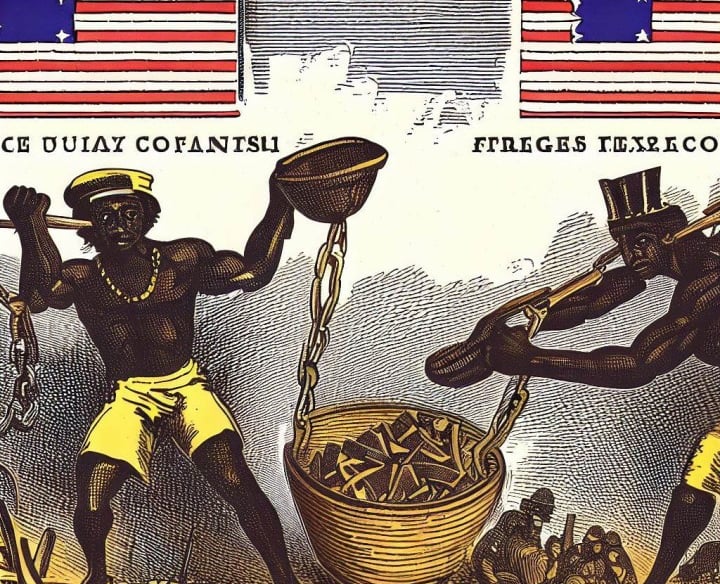
Blog
Gang of Evils: African Resources, Exploitation, and Empowerment
Why the African continent, with its large size, diverse climate, fertile land, abundant natural resources like oil and minerals, and hard working people, still faces poverty and malnutrition among children and adults. To know more, read my below article and know your view in comment section Regards
ENGLISH ARTICLE
Being an Indian involved in the import and export of agricultural products globally, I try to stay informed about events in African countries, even though I don’t know a lot about their internal politics and current affairs. I want to share my thoughts based on what I know, and I welcome my friends from Africa to correct me if I’m wrong.
Lately, I’ve been wondering why the African continent, with its large size, diverse climate, fertile land, abundant natural resources like oil and minerals, and hard working people, still faces poverty and malnutrition among children and adults.
African countries could provide aid to others, but they’re the ones receiving it. They have the potential to manufacture finished products and export them worldwide, yet they’re importing finished products.
My question is: Why is this happening?
From my perspective as an outsider, it seems that corrupt leadership in African countries and certain western countries (which I’ll refer to further as the “GANG OF EVILS”) are responsible.
For quite some time, these western countries, particularly France, the USA, and various European nations, have exploited African leaders for their own benefit, irrespective of whether the African government is elected, military, or dictatorial.
Those who opposed the evil intentions of these western countries have been either eliminated or removed from power. Muammar Gaddafi and Saddam Hussein are examples of this.
The GANG OF EVILS has always kept Africans poor. They haven’t empowered farmers, established industries, created jobs, or provided quality education. They’ve focused on exploiting Africa’s precious metals and minerals at low prices, often smuggling them out.
These GANG OF EVILS also support rebel groups to create instability in countries like Congo, Central African Republic, and Sierra Leone, making it easier to exploit resources cheaply through black market operations.
If Israel can grow olives for export with limited water, and Saudi Arabia can farm in the desert on a large scale, why can’t African farmers with fertile land grow high-yield crops and export them? They can, and in large quantities. This would increase African countries’ foreign reserves.
But instead of empowering farmers, providing training, or using modern technology, the GANG OF EVILS keeps them dependent through small aids.
Africa holds abundant resources like Uranium, gold, iron ore, aluminum, copper, diamond, platinum, petroleum and natural gas, crude oil, coffee, grains, and more, which are crucial for global stability. If these resources were cut off, the world would face instability, not in years, but only in a few months. Africa is essential globally.
Africans must realize the truth about the GANG OF EVILS. Numerous African nations have recently taken resolute measures against them, as seen in Niger and previously in Sahel region.
I want to tell Africans that change comes with pain. Don’t be afraid during this challenging time. Once it’s over, positive change will happen. The future belongs to Africa and Asia.
India, Russia, and other BRICS countries support Africa and will continue to raise their voices.
Conclusion: The solution is to stop aid from west and empower Africans through good leadership and exposure to international markets. Africans need to unite, reclaim their resources, and negotiate better trade deals for their people.
Resources should remain within Africa, undergoing processing and manufacturing exclusively within African nations. Foreign companies should establish processing facilities in Africa, generating employment for Africans and boosting foreign reserves.
I encourage my African brothers and sisters to share their thoughts in the comments section of this concise article.

